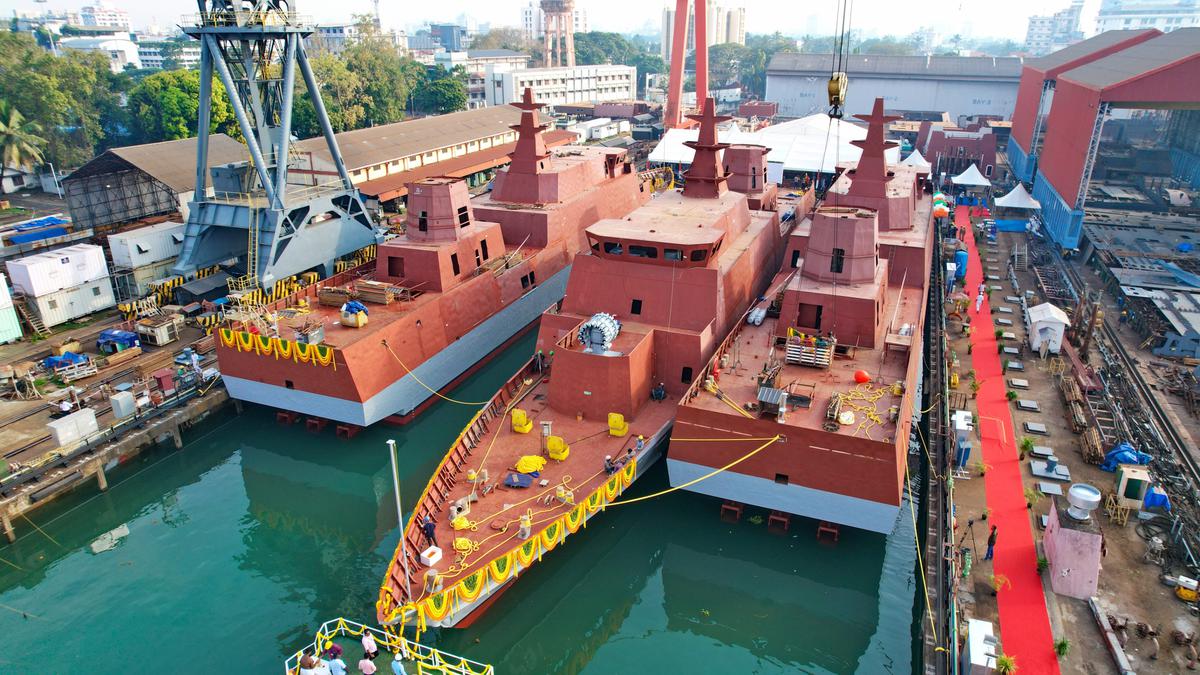The first three of eight Anti-Submarine Warfare (ASW) shallow water craft being built by the Cochin Shipyard for the Indian Navy were launched at the shipyard at the same time on November 30 (Thursday) morning.
When they joined the Navy, the ships would be called INS Mahe, INS Malvan, and INS Mangrol. They were launched in front of Vice Chief of Naval Staff Vice Admiral Sanjay J. Singh, Commander in Chief of Strategic Forces Command Vice Admiral Suraj Berry, and Commandant of the Indian Naval Academy Vice Admiral Puneet Bahl, along with their wives Anjali Bahl, Kangana Berry, and Zarine Lord Singh.
Capabilities
A deal was made between the shipyard and the Ministry of Defense to build eight ASW ships in 2019. These ships, the Mahe class, will replace the Navy’s current Abhay class ASW corvettes. They are made for low-intensity maritime operations, mine laying, and surveillance operations below the surface. They can also work together with aircraft to coordinate ASW operations and search and rescue.
Lightweight torpedoes, ASW rockets, mines, a 30 mm gun for close combat, and 12.7 mm stabilized remote control guns are all on board.
The length of these ships is 78 meters, the width is 11.36 meters, the depth is 2.7 meters, they weigh 896 tonnes, and they can go as fast as 25 knots (about 45 kmph). Their range is 1,800 nautical miles, and they were made to fit sonars made in the country for underwater surveillance. There would be 57 people on each ship, including seven naval officers. Official sources say they were built using the integrated hull outfit and painting construction method used at the yard and in line with what the navy needed.
Emphasis on self-reliance
Vice Admiral Sanjay J. Singh spoke at the event and said that India has a strong shipbuilding system thanks to efforts to become more independent and use Indian materials. This shows that the country’s navy is getting stronger.
In his speech, Madhu S. Nair, the chief managing director of the shipyard, said that the launch of the three warships came soon after the launch of the indigenous aircraft carrier INS Vikrant, which was also built at the same yard. Even though there were problems like the pandemic, changes in the value of the dollar, and the war in Ukraine, they were delivered within the price limit that had been set.
